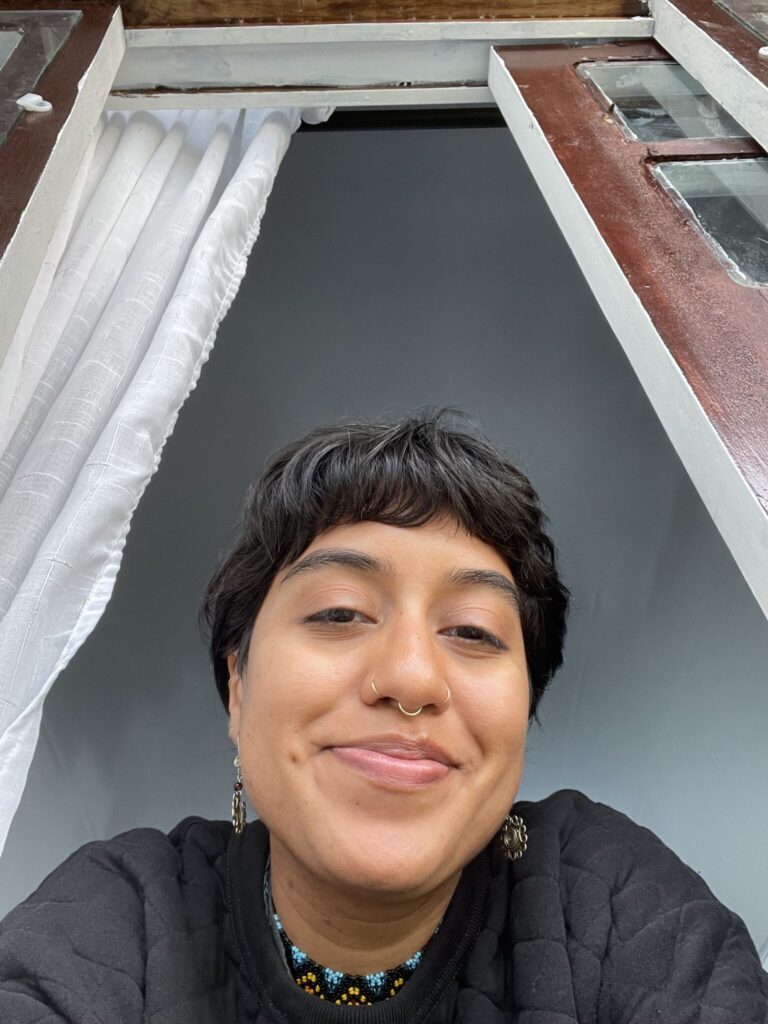educator bio

I situate myself in this project as a queer, brown Colombian-American person living in the United States. As a child of immigrants, I hold a firm understanding of the ways that borders uphold empire, marginality, violence, and erasure. My experience growing up working-class in a predominantly immigrant Latinx community in South Florida has illuminated my racial and class consciousness to various degrees. At the same time, my family’s ancestral homelands in the Andes of Colombia have reflected back varying narratives around the colonial project of mestizaje and ethnic assimilation. My experience of embodying a queer racialized gendered identity informs my social and political alliances. It is through this commitment to self-knowledge that informs my locational politics and prompts my curiosity about bridging transnational dialogue in my work. Lately, though, I’ve been sitting with the question: what does “transnationalism” really mean? What does transnationalism look like in practice? As a film programmer and budding youth educator, my research often takes me beyond my immediate geographies, even if just through books and screens. I find it very important to be able to make connections across borders, especially as someone engaging cinema as a tool for shifting consciousness. In pursuing this project, my hope is to contribute to a much-needed dialogue for those finding themselves at crossroads within the cinematic landscape, and to be curious about the spaces of tension and the openings those may bring. – natalie erazo

